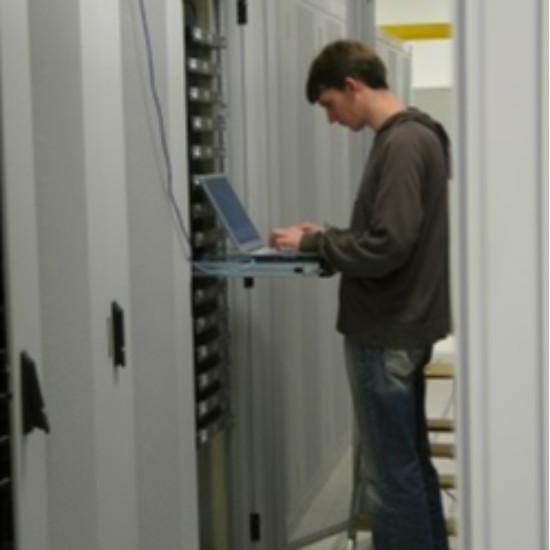
What type of fire protection system is best for a Server Room? While pre-action sprinkler systems can be used in a server room, Clean Agent Systems have definite advantages.
Between 2006 and 2010, there were an estimated 209 reported U.S. structure fires per year that started in electronic equipment rooms, according to the NFPA. It was also reported that 64% of fires in commercial buildings are due to power and climate control equipment – both of which run 24/7/365 in server rooms. The goal of a fire protection system is to detect and alert of fire in the early stages and then bring the fire under control. The advantages of early detection are to allow as much time as possible for evacuation and to protect assets from extensive damage.
For any size business, having a networked server for all employees to save work to is expensive. The benefits of this are so widely accepted that it is the standard in businesses. Consider if you lost a single day’s worth of data. According to the National Archives & Records Administration in Washington, 93% of companies that lost their data center for 10 days or more due to a disaster filed for bankruptcy within one year of the disaster.
It is important to have a protection system customized for your server room, as these rooms are designed specifically to house and maintain valuable and expensive assets for companies. The electronic equipment is sensitive to damage, and the set-up of the room is specific to maintain the equipment – a set-up which can interfere with fire protection if not taken into account. Click here to learn more about smoke and fire detection in server rooms.
Pre-action sprinkler systems are occasionally used in server rooms for fire protection. The benefit to the pre-action system is that the water is not stored in the sprinkler pipes, reducing the risk of pipes leaking and causing damage to the IT equipment. Water damage can still be caused by your dry sprinkler system though if there is a leak in your pipes or a hole due to corrosion from MIC, and your pre-action valve is released due to error (during a test for example). Even with your sprinkler heads intact, you now have water spraying down on your equipment from the leaks. Pre-action systems do have a lowered risk of water damage due to false alarms, as the pre-action system requires two separate events in order for water to flow out of the sprinkler system; first, the smoke detectors must identify a developing fire which releases the pre-action valve allowing water to flow into the sprinkler pipes, second, the sprinkler heads must be activated by heat to allow water to flow out into the room. While these precautions do reduce the chance of water damage in the event of a faulty system or false alarm, if an actual fire occurs water damage is guaranteed.
Water from a sprinkler system could cause as much (if not more) damage as the fire itself to the sensitive assets in your server room. Clean agent systems, however, limit the damage to computer equipment by utilizing a gas that requires no clean up after activation and will not harm your sensitive electronics.
Halon gas, which was traditionally used in server room fire protection systems, has been shown to deplete the ozone and is unsafe for humans. Today, most server rooms use a clean chemical agent such as FM200 which does not contain any ozone depleting agents and protects electronic assets without leaving residue or oily deposits. The effectiveness of clean agents is dependent on how tightly sealed the room is, as the agent must be contained in the intended room for an extended period of time to put the fire out and ensure it does not reignite. NFPA 2001 2008 5.6, Standard on Clean Agent Fire Extinguishing Systems, sets the minimum concentration amount that needs to be held in the room for at least 10 minutes. To ensure this standard is met, a Room Integrity Fan Test must be completed at the time of installation and annually thereafter.
In addition to the detectors, alarm, and suppression agent, the fire suppression system in your server room should be able to shut down the ventilation for the room by closing dampers in the HVAC system. This is important for containing the fire, reducing the amount of agent required and keeping the room sealed for the use of the chemical suppression agent.
Space in your server room is valuable, you want to utilize the protected space in your server room for the necessary electronic hardware. This is one advantage to clean agent suppression systems, as you can have the chemical agent tanks stored in a neighboring space, such as a supply closet, instead of inside the server room itself. However, the disadvantage to storing the tanks in a neighboring space is that if you have a leak in the pipes you may lose too much agent at discharge to suppress the fire. If the tanks are stored in your IT room, then a leak is not as problematic since the agent is still ending up in the IT room where the fire is occurring.
A1 is a leading expert on the latest technology in life safety. To find out more information or to ask a question, click here or call us at 1-800-859-6198.
